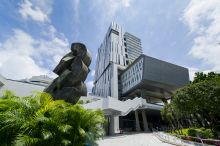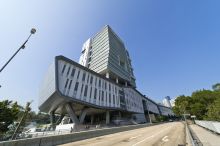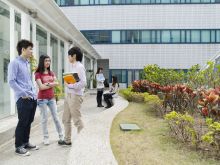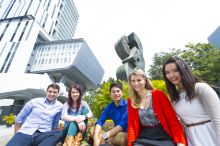Programme Core Courses (12 Credit Units)
- Theories and Approaches in Development Studies
- Sustainability Infrastructures and Measurements
- Sustainable Development: Theories and Policy
- Capstone Project or Master's Thesis
Stream Core Courses (15 Credit Units)
Development Challenges Stream
- Authoritarian Resilience and Democratic Change in East Asia
- Environmental Challenges in Asia and the World
- China and the Developing World
- Politics and Social Movements in Developing Asia
- Comparative Development in Asia
- Cutting-edge Cases in Development under Late Capitalism
Sustainability Strategies and Policies Stream
- Collaborative Governance for Sustainability
- Food Governance and Sustainability
- Managing Sustainable Development
- Labour, Sustainability and Development
- Urban Development and Sustainable Cities
- Financing Sustainability: Policy and Mechanism
Note: Depending on the availability of resources, the Department will decide which four courses will be offered for the Development Challenges Stream and the Sustainability Strategies and Policies Stream respectively at the beginning of each academic year.
All applicants are required to indicate their preferred study stream at the time of application. While the University tries to accommodate applicants' preference as far as possible, applicants’ allocation to their first choice is not guaranteed. The University reserves the right to suspend a study stream in case of under-enrolment.
Programme Electives (3 Credit Units)
- Urban Design and Regional Planning History, Theory and Practice
- Energy Management for Building Sustainability
- Renewable Energy for a Sustainable Building Performance
- Sustainable Building Development
- Project Planning and Management for Development
- Research Design for the Social Sciences
- Women and Politics in Asia
- Understanding and Managing Smart Cities
- Environmental Governance in China
- Evidence-based Policy and Practice






